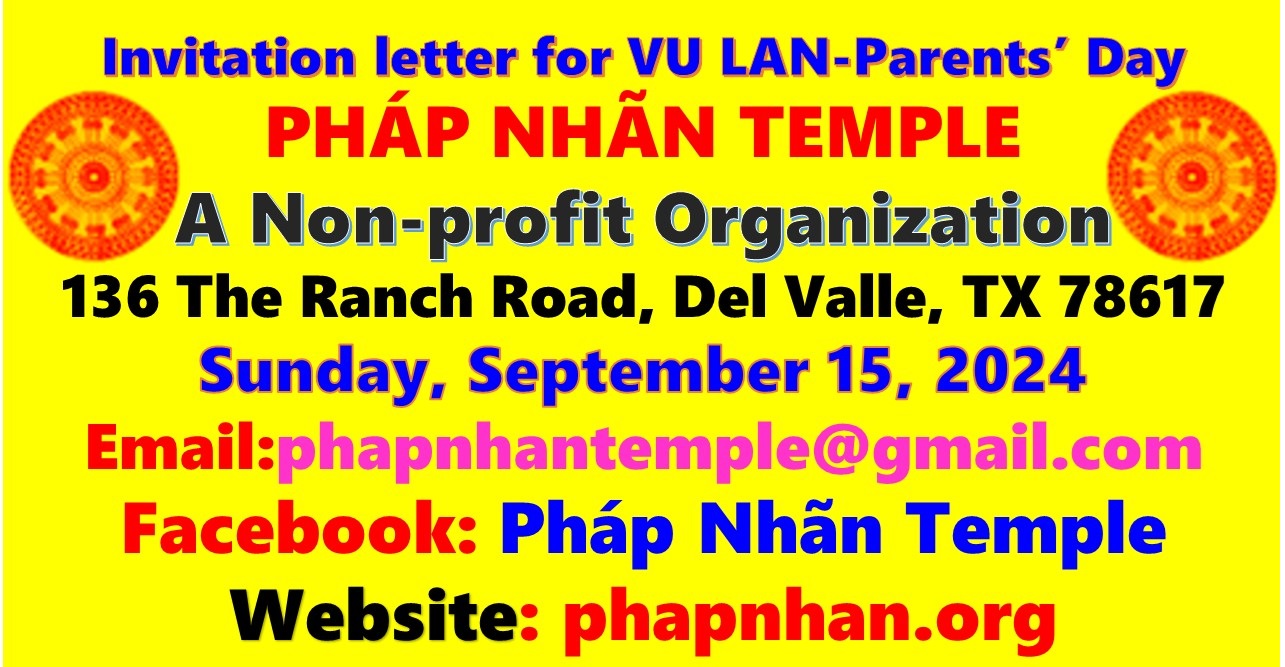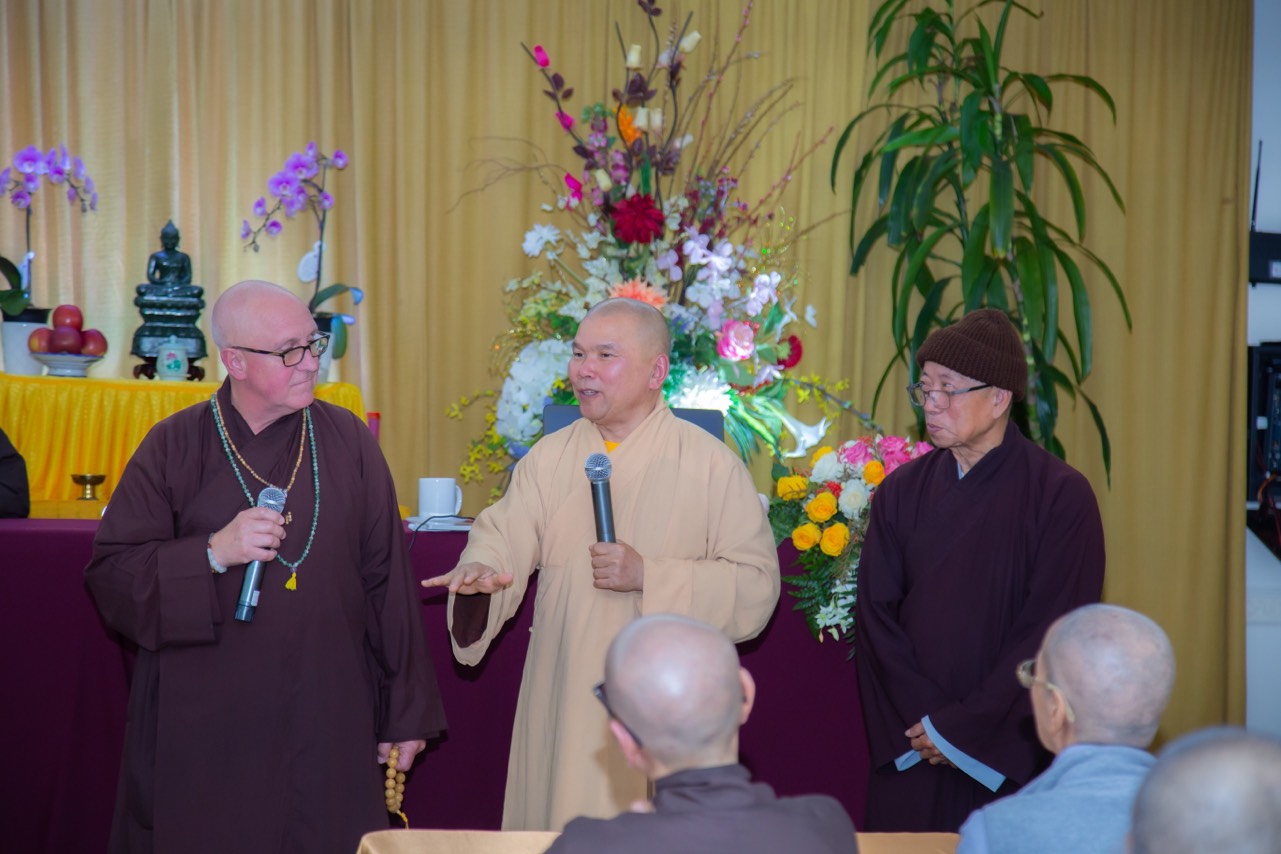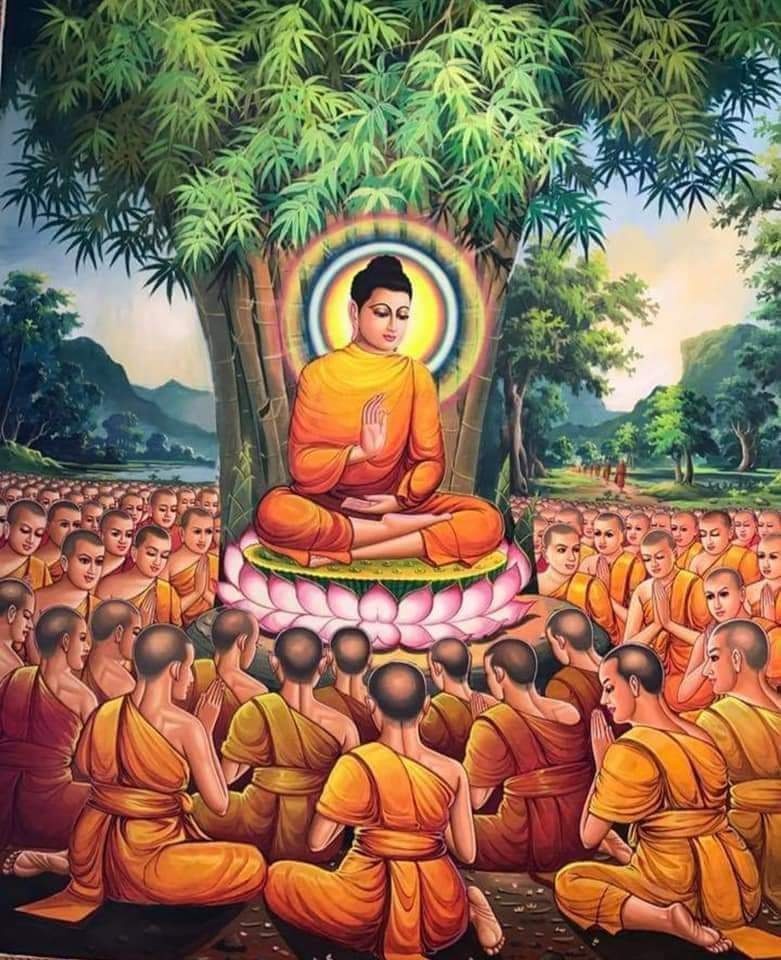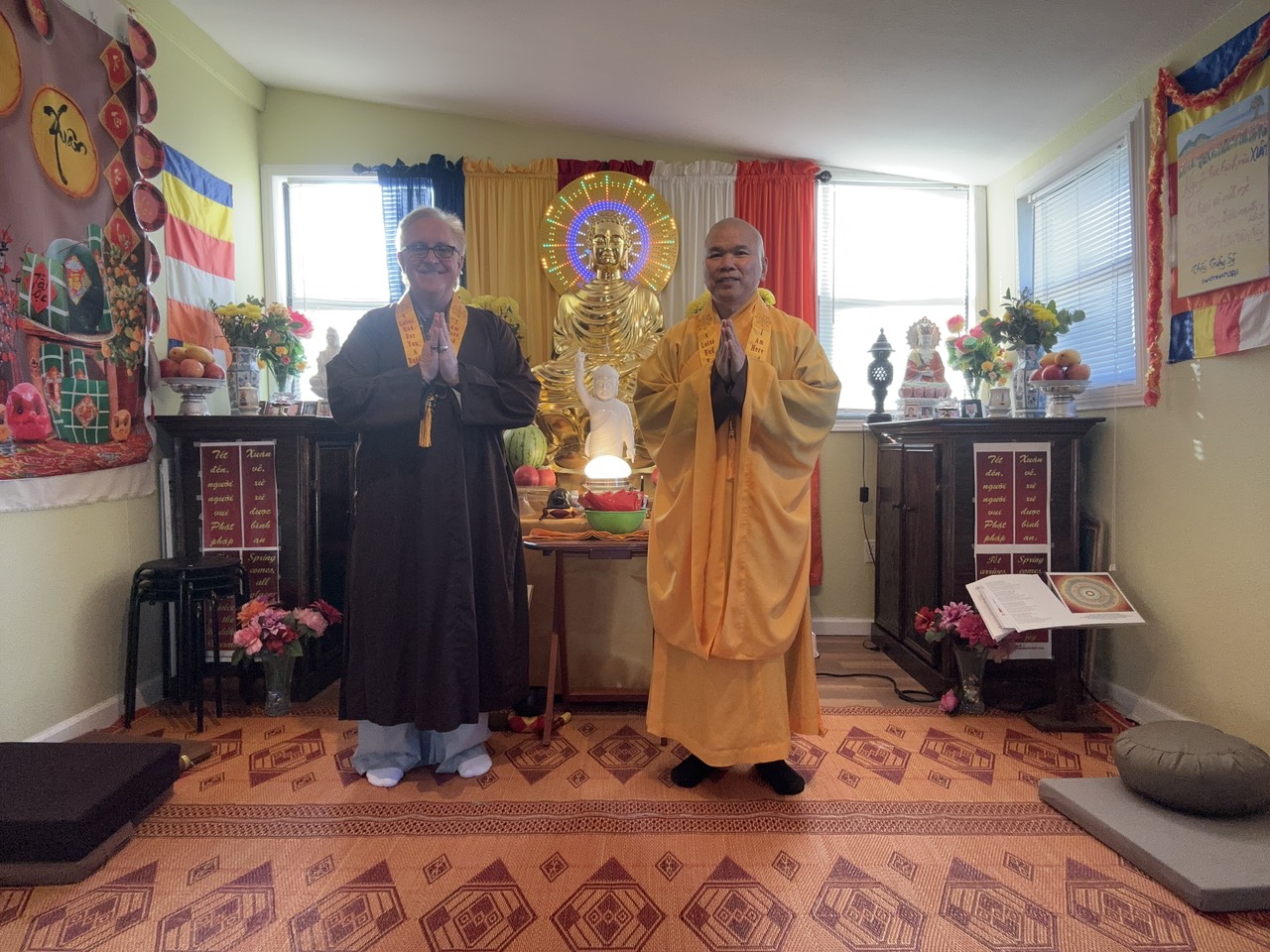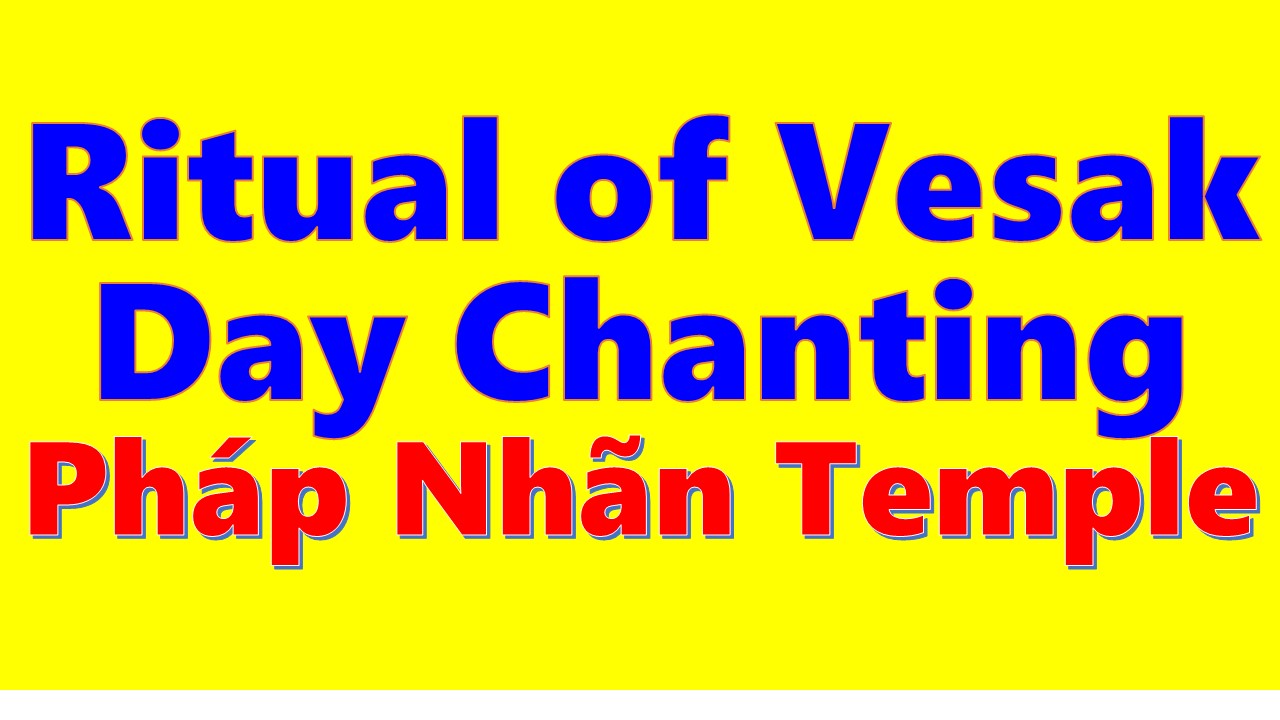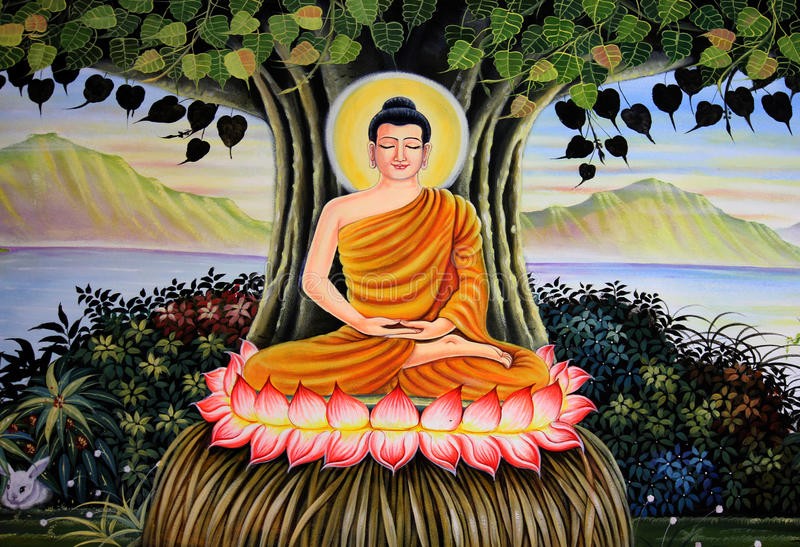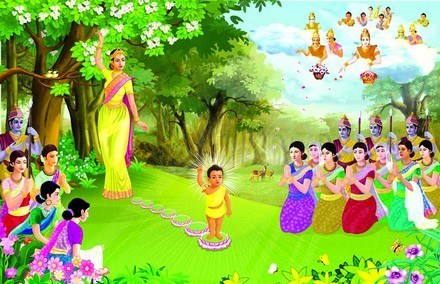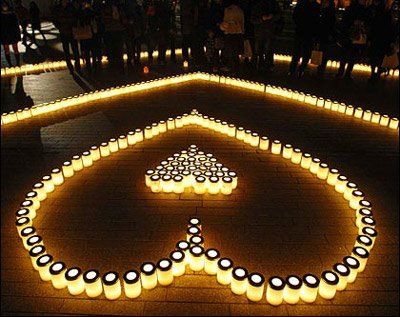
THE MEANING OF THE CEREMONY OF THE ROSE BEING PINNED ON YOUR POCKET
Namo The Original Master Sakyamuni Buddhaya
Dear respectfully the Venerable Monks and Nuns,
Dear Dharma Sisters, Brothers, and everyone
Today, I would like to read and present “The meaning of the ceremony of the roses pinned on the pocket.”
Around the early 1960s, Zen Master Thích Nhất Hạnh had a good opportunity to visit Zen Master Thích Thiên Ân in Japan on the occasion of Bon festival similar to the Vietnamese Filial Piety – Vu Lan festival. During that ceremony, both Zen Masters were pinned on their pockets with red carnations. By the way, Zen Master Thiên Ân explained, the red carnation symbolizes those who still have enough parents; pink carnations represent those who have either lost their father or mother; White carnations represent those who have lost both parents.
In the season of Vu Lan of Filial Piety in 1962, Master Thích Nhat Hanh wrote a short writing piece of “the Rose pinned on the pocket”. With the above-mentioned meanings, he used the images of the roses instead of the carnations applied from 1963 until the present day.
Indeed, during the annual Vu Lan season of filial piety, the Temples often hold the Rose Ceremony to speak up the profound meaning of the gratitude of birth, nurturing, and teaching of our parents. In this festival, if you have enough parents, you will get a red rose. If you either lose your mother or father, you will get a pink rose. If you lose both parents, you can get a white rose pinned on your pocket.
If you are a monastic, you will get a yellow rose on your saffron robe. The yellow color represents relaxation, equanimity, freedom, no ties, attachments, and no entanglements. The rose symbolizes love of couple, love of marriage, parents, teachers, students, and love of the Three Jewels, etc.
Love manifests more or less depending on how you use and behave appropriately different objects and contexts in your life.
The purpose of this great Ceremony is to remind us to remember the love of parents, grandparents, spiritual and bloodline ancestors; this love is the most basic and solid foundation to help us nurture and develop the love for homeland and country later on.
Wanting to do this well, in the family, as a filial son or daughter, you skillfully respect and serve your parents both physically and mentally, especially in the spiritual aspect by advising your parents to be vegetarian to maintain health, to foster loving-kindness, compassion, to avoid evil, and to do good. When your parents do not take refuge in the Three Jewels yet and not practice the Five Ethical Trainings yet, you are the person with the duty to directly invite your parents to take refuge in the Buddha Jewel, the Dharma Jewel, and the Sangha Jewel. The three noblest and most marvelous refugees not only do the most solid spiritual support, but also make the lamp of insight illuminate living beings in life.
Once your parents have good conditions to contact Buddhism; the path of awakening, enlightenment, peacefulness, happiness, and peace for the many all over the planet, then you are the person of true continuation of the parents, grandparents, ancestors, teachers, Patriarchs, Buddhas, Bodhisattvas, etc. According to the teachings of interrelationships, when you look deeply at them, you find yourself present in them, and they are present in you.
During this year’s Vu Lan – Filial season, we would like to respectfully offer the red, pink, white, and yellow roses to all those whose parents are still alive or dead in the world.
Namo the Buddha and Bodhisattva present in the Vu Lan Festival.
By Ven. Thích Trừng Sỹ


